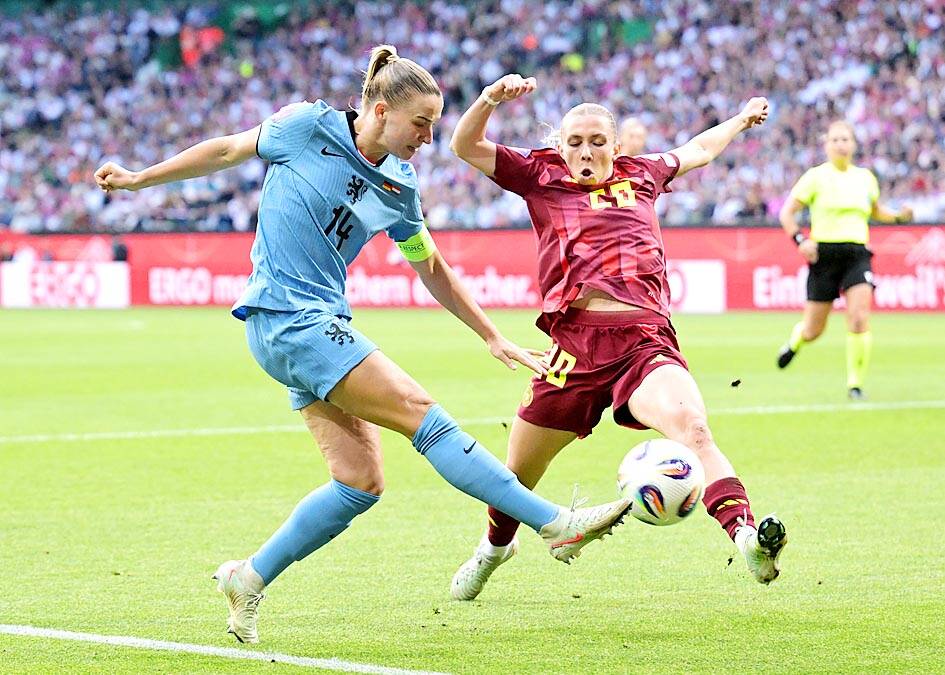Fifteen-year-old Esmee Stuut sprints between cones on a soccer pitch in the Netherlands, her every movement captured on camera as part of a study into a crippling knee injuries that affect girls more than boys.
Cruciate ligament injuries can rule out a player for months and teenage girls are especially at risk — for physical and mental reasons.
The study Esmee, a youth striker at Groningen in the north of the country, is taking part in aims to improve the movement of female teenage players like her.

Photo: Reuters
“A lot of girls of my age have had it. I’m happy to be able to do my bit to help out,” she said, breathless from the sprinting exercise.
The Netherlands is a hotbed for women’s soccer, with the national team crowned UEFA Women’s Championships in 2017 and reaching the FIFA Women’s World Cup Final in 2019.
The country has 175,000 women club members, with the figure constantly rising. In comparison, France has just more than 250,000 for a much bigger population.
“Girls are between four to eight times more likely to get injured than boys at puberty,” University of Groningen professor Anne Benjaminse said.
“The difference starts at around 12,” the sports science specialist said.
The problem is not just physical. Benjaminse is also looking into the mental health aspect, which she believes plays a major role.
Girls mature at different times than boys, and ligaments are more fragile during periods. Add to that stress, mood and fatigue, and you get a potent cocktail that results in injury.
“Divorce, death, moving around, but also a bad grade at school, an argument. These are small things to us, but are big problems for them” that can contribute to physical injury, Benjaminse said.
The aim is that mental health and movement become a “standard element” in clubs’ training methods at the same level as gym work and nutrition, Benjaminse said.
“This should no longer be called into question. Girls should be able to speak out if they don’t feel right and coaches should take it into account,” she said.
Henderika Kingma, 28, manager of the Groningen women’s team and Esmee’s coach, said two of her players sustained cruciate ligament injuries at the end of the season.
“We have to do everything we can to prevent this injury happening to our young players,” Kingma said.
Despite the study and raising awareness of the problem, Benjaminse is also philosophical about the injury.
“Sometimes it’s just bad luck,” she said.